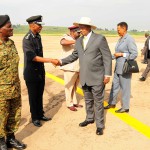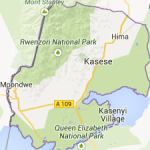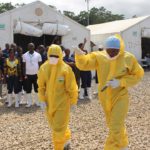The South Korean government through, Korea International Cooperation Agency (KOICA) and the World Health Organization (WHO) have extended $10 million towards the improvement of Reproductive, Maternal, Newborn, Child and Adolescent Health (RMNCAH) services in five districts in Busoga sub-region.
The support is aimed at improving RMNCAH service delivery to the communities and strengthening the capacity of health systems in the selected five districts. The areas of focus will be the procurement of ambulances, training of health workers, improving cold chain systems and refurbishment of 30 health facilities in Bugiri, Buyende, Iganga, Kamuli and Mayuge districts.
The five-year project dubbed, ‘Health System Strengthening for Improving RMNCAH Service Delivery in Five districts in Busoga sub-region, Uganda’, is collaboration between KOICA and WHO were the two are contributing Nine Million Dollars and One Million Dollars, respectively.
Through this project, 560,809 pregnant women, 499,852 newborn babies and over 1,480,200 people in the select districts will benefit from the support.
The partnership fits well within Strategic priority four of the WHO Country Cooperation Strategy that looks at strengthening the multisectoral approach for addressing reproductive, maternal, neonatal, child and adolescent health (RMNCAH) and the social and environmental determinants of health.
KOICA Country Director, Mr Kim Taeyoung, said the Health System Strengthening for Improving RMNCAH Service Delivery in Five districts in Busoga sub-region Project is in line with national and global RMNCAH strategic plans and frameworks especially the SDGs three on Good Health and Well-being and 17 on partnership for the goals. KOICA is concerned about the health sector and wellbeing of Ugandans and this intervention is in line with the KOICA Country Partnership Strategy for Uganda.
“KOICA expects that the project will unlock some of the systemic challenges within the six pillars that make the Health systems strengthening blocks in the Busoga sub-region as well developing a responsive health care system that will benefit mothers and children in need of RMNCAH services. We are also grateful to WHO and the Government of Uganda for the continued cooperation and we are hopeful that this will be a sustainable and successful project,” Mr. Kim Taeyoung remarked.
“This collaboration comes at a time when the delivery of essential health services has been derailed by the COVID-19 outbreak. The timely support from the KOICA will indeed go a long way in addressing the gaps in RMNCAH service delivery especially in terms of health system strengthening. WHO is committed to continually work with KOICA and the Ministry of Health to strengthen the health system.” Dr Yonas Tegegn Woldemariam, WHO Representative in Uganda.








